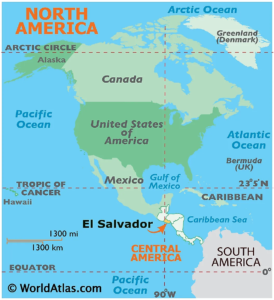In news
El Salvador became the first country in the world to adopt bitcoin as legal tender
Why this move?
- The dynamic underpinning the whole move is that El Salvador has no monetary policy of its own and hence, no local currency to protect.
- The country was officially ‘dollarized’ in 2001 and runs on the monetary policy of the US Federal Reserve.
- This move of El Salvador is in part motivated by loose and expansionary Federal Reserve policy.
- Proposed bill of El Salvador stated that “central banks are increasingly taking actions that may cause harm to the economic stability of El Salvador… (and) in order to mitigate the negative impact of central banks, it becomes necessary to authorize the circulation of a digital currency with a supply that cannot be controlled by any central bank and is only altered in accord with objective and calculable criteria,” i.e, Bitcoin.
- The overall use of Bitcoin appears less motivated by its use as a currency and much more by the image and investment boost this could give the country towards innovation.
- The move into Bitcoin ties in with larger efforts to revive a stalling economy and bring back growth into the country post-Covid
- El Salvador is also planning to give immediate permanent residence for crypto entrepreneurs.
- However, the Government of El Salvador mentioned that dollar will continue to remain the dominant currency in the country and Bitcoin will exist side by side.
Its implications on India
One implication that is relevant to India is the impact this could have on remittances. Remittances make up close to 20% of El Salvador’s GDP with flows approximating $6 billion annually. Many citizens lack a bank account and digital banking has low penetration. In this scenario, there are multiple intermediaries in the remittance chain who take cuts of as high as 20%. The impact Bitcoin has on these remittance inflows would be worth monitoring for India, which is home to the largest remittance market in the world. Although there might not be many lessons from a monetary policy perspective but efficiency, anti money-laundering and other aspects could be closely monitored.
About El Salvador
- The Republic of El Salvador is a small coastal country in Central America.

- El Salvador’s capital and largest city is San Salvador.
- El Salvador’s population numbers 6.1 million. Ethnically, 86.3% of Salvadorans are mixed (mixed Native Salvadoran and European (mostly Spanish) origin)
- El Salvador is also known as the land of volcanoes as well as “the little thumb of America”
About Bitcoin
- Bitcoin is a form of digital currency that allows you to send money to anyone instantly.
- Bitcoin was launched in 2009.
- Bitcoin is a decentralised digital currency that is built on an open-source algorithm and is not distributed by a centralised authority. Bitcoin is a peer-to-peer electronic cash system.
- No central authority issues new money or keeps track of transactions in a peer-to-peer system.
- The network manages these activities collectively.
- The capitalised term “bitcoin” refers to the protocol and transaction network, while the lowercase term “bitcoin” refers to the currency itself.
















